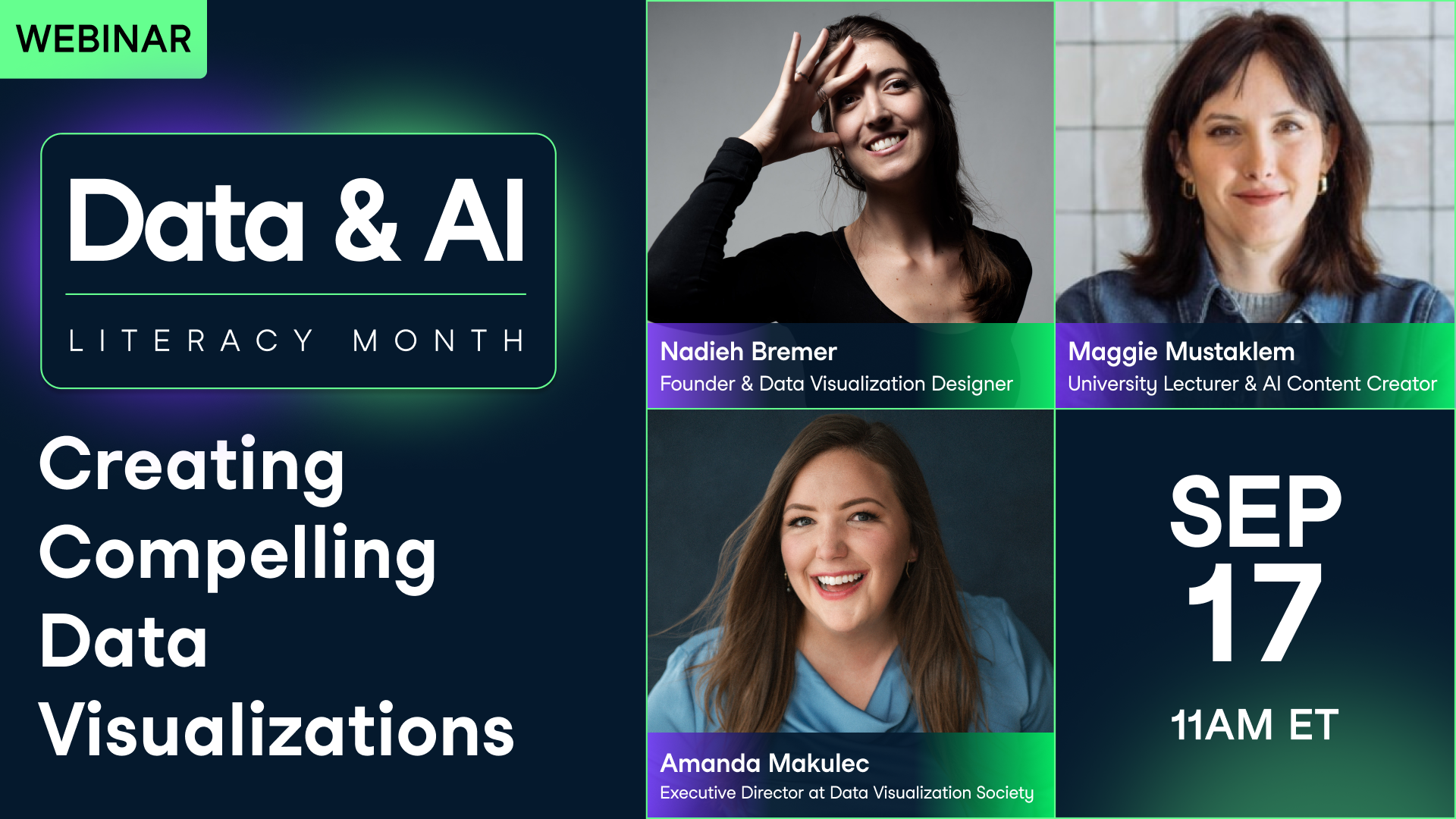Skip to main contentFor Business





Speakers
Training 2 or more people?
Get your team access to the full DataCamp library, with centralized reporting, assignments, projects and moreRelated
webinar
How to Write Effective Data Stories
In the second of three data storytelling sessions, a leading data journalist will teach you how to write about data.webinar
The Art of Data Storytelling: Driving Impact with Analytics
In this session, three industry leaders will shed light on the art of blending analytics with storytelling, a key to making data-driven insights both understandable and influential within any organization.webinar
How to Build a Data Storytelling Culture
In the third of three data storytelling sessions, Paulina Davila, and Lee Feinberg teach how how to make use of data storytelling across your organization.webinar
From Insight to Impact with Data Storytelling
In this session, join Gary Wolf, Lea Pica and Jason Forrest as they delve into the world of data stories and how they play out in our lives.webinar
Creating Effective Graphs
In this session, you'll learn key principles of data visualization, from understanding which plot to draw in common situations, to design techniques to improve your audience's comprehension.webinar
Effective Data Storytelling for Financial Services
Learn simple communication techniques to make your ideas understood, whether you are speaking to a technical audience or a business audience.Join 5000+ companies and 80% of the Fortune 1000 who use DataCamp to upskill their teams.
Loved by thousands of companies



